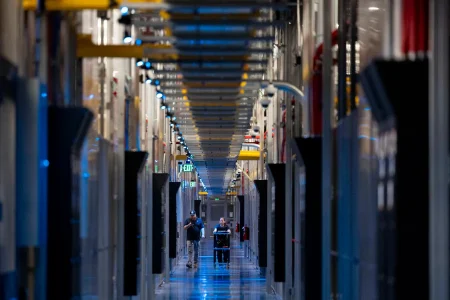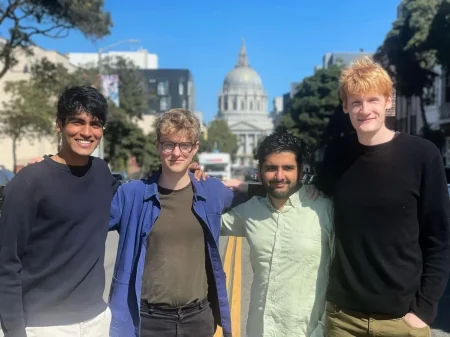OpenAI’s Sora Launch Triggers Outages, Mirroring Past Internet Disruptions
The recent outage of OpenAI’s services, including the popular ChatGPT, served as a stark reminder of society’s growing dependence on online platforms. While the disruption was undoubtedly inconvenient for countless users who have integrated these tools into their daily workflows, it also echoed a historical parallel: the 1996 AOL outage. Much like the 24-hour disruption that shook the early internet landscape, the OpenAI incident highlighted the increasingly utility-like nature of online services. The 1996 AOL outage sent shockwaves through a world just beginning to grasp the potential of the internet. The disruption underscored the internet’s transition from a novelty to a necessity, akin to electricity or water. This realization propelled AOL’s valuation into the stratosphere, resulting in multiple stock splits over the following three years. While the OpenAI outage was significantly shorter, it similarly emphasized how integral AI-powered tools have become to modern life, potentially foreshadowing a similar trajectory for OpenAI’s future growth. The incident also underscores the need for robust infrastructure and contingency plans to mitigate the impact of future disruptions in the rapidly evolving AI landscape.
TikTok Faces Impending Ban, Seeks Legal Reprieve
TikTok, the popular short-form video platform owned by ByteDance, is facing a looming deadline that could drastically alter its presence in the United States. A law mandating ByteDance to divest TikTok by January 19, 2025, or face a nationwide ban is currently being challenged by the company in the U.S. Court of Appeals for the District of Columbia. ByteDance and TikTok have filed an emergency motion seeking a temporary injunction against the law, arguing that a ban would deprive over 170 million American users of access to the platform. They further contend that the potential change in presidential administration could lead to a reassessment of the situation, suggesting that a delay would be prudent. This legal battle highlights the complex intersection of national security concerns, technological influence, and free speech principles, setting the stage for a potentially landmark decision with significant implications for the future of online platforms in the U.S. The Justice Department, however, opposes the request, citing persistent national security concerns related to the app’s Chinese ownership.
The Rise of Emotionally Intelligent AI: Waveform Secures $40M Investment
Waveform AI, helmed by former OpenAI researcher Alexis Conneau, is pioneering the development of AI voice models with enhanced emotional intelligence. This innovative approach aims to create more empathetic and realistic interactions, pushing the boundaries of human-computer communication. Conneau’s prior contributions to OpenAI’s GPT-4o voice mode, renowned for its real-time responsiveness and ability to handle interruptions, provide a strong foundation for Waveform’s ambitious goals. The company recently secured $40 million in funding from prominent venture capital firm Andreessen Horowitz, signaling strong confidence in Waveform’s vision. This investment will enable Waveform to accelerate its research and development efforts, potentially revolutionizing how humans interact with AI-powered voice assistants and conversational agents. The infusion of capital reflects the growing interest in emotionally intelligent AI and its potential to transform various industries, including customer service, healthcare, and education.
Vapi and PlayAI Secure Funding, Advance Conversational AI Capabilities
The evolution of conversational AI continues to attract significant investment, with Vapi and PlayAI securing substantial funding rounds to further their respective platforms. Vapi, a voice AI platform, raised $20 million in a Series A round led by Bessemer Venture Partners. This capital will be used to expand Vapi’s engineering team, enhance its real-time infrastructure, and cater to the growing demands of its enterprise clientele. Having already achieved millions in revenue since its 2023 launch, Vapi is poised for further growth, providing customizable AI voice agents for industries like healthcare, finance, and customer service. Meanwhile, PlayAI secured $21 million in a seed round led by Kindred Ventures and 500 Global. This investment will fuel PlayAI’s mission to develop a deeper understanding of conversation, aiming to create AI systems that not only comprehend but also empathize with users. Both companies are contributing to the rapid advancements in conversational AI, promising more intuitive and human-like interactions with technology.
OpenAI’s Sora and the Future of Text-to-Video Generation
OpenAI’s "12 Days of OpenAI" event marked the official launch of Sora, a highly anticipated text-to-video AI model. This groundbreaking technology allows users to create high-quality video content from simple text prompts, opening up a new realm of possibilities for creative expression and content creation. However, the initial rollout was met with overwhelming demand, leading to widespread outages and access issues. These technical challenges highlight the immense interest in Sora’s capabilities and the growing appetite for advanced generative AI tools. As OpenAI addresses the initial infrastructure challenges, Sora is expected to become a major player in the text-to-video generation landscape, competing directly with offerings from Google and Runway. The launch of Sora signifies a pivotal moment in the evolution of generative AI, potentially revolutionizing how video content is created and consumed.
The Evolving XR Landscape: From Samsung’s Project Moohan to Dino Hab
The extended reality (XR) landscape continues to evolve at a rapid pace, with new hardware and experiences emerging from industry giants and innovative startups alike. Samsung unveiled Project Moohan, its upcoming mixed-reality (XR) headset powered by Android XR, slated for a 2025 release. The device blends design elements from Meta’s Quest and Apple’s Vision Pro, featuring a Snapdragon XR2+ Gen 2 chip and supporting hand, eye, and controller-based input. Meanwhile, the collaborative effort between 30 Ninjas, Meta, and Dark Slope has resulted in Dino Hab, a mixed reality experience that allows players to raise dinosaurs and restore prehistoric habitats in immersive 3D worlds. Dino Hab leverages an AI companion powered by Inworld AI, guiding players between MR and VR environments, offering a unique cross-platform adventure. These developments represent the ongoing push towards more immersive and engaging XR experiences, blurring the lines between the physical and digital worlds. Furthermore, Google’s Gemini 2.0 introduces autonomous AI capabilities, notably its ability to independently verify information via a web browser, marking a significant step towards the "Agentic Era" of AI. X (formerly Twitter) making its AI chatbot Grok free for all users further democratizes access to conversational AI, while China’s advancements in Brain-Computer Interface (BCI) technology with the NEO device signal a global race in this cutting-edge field.













